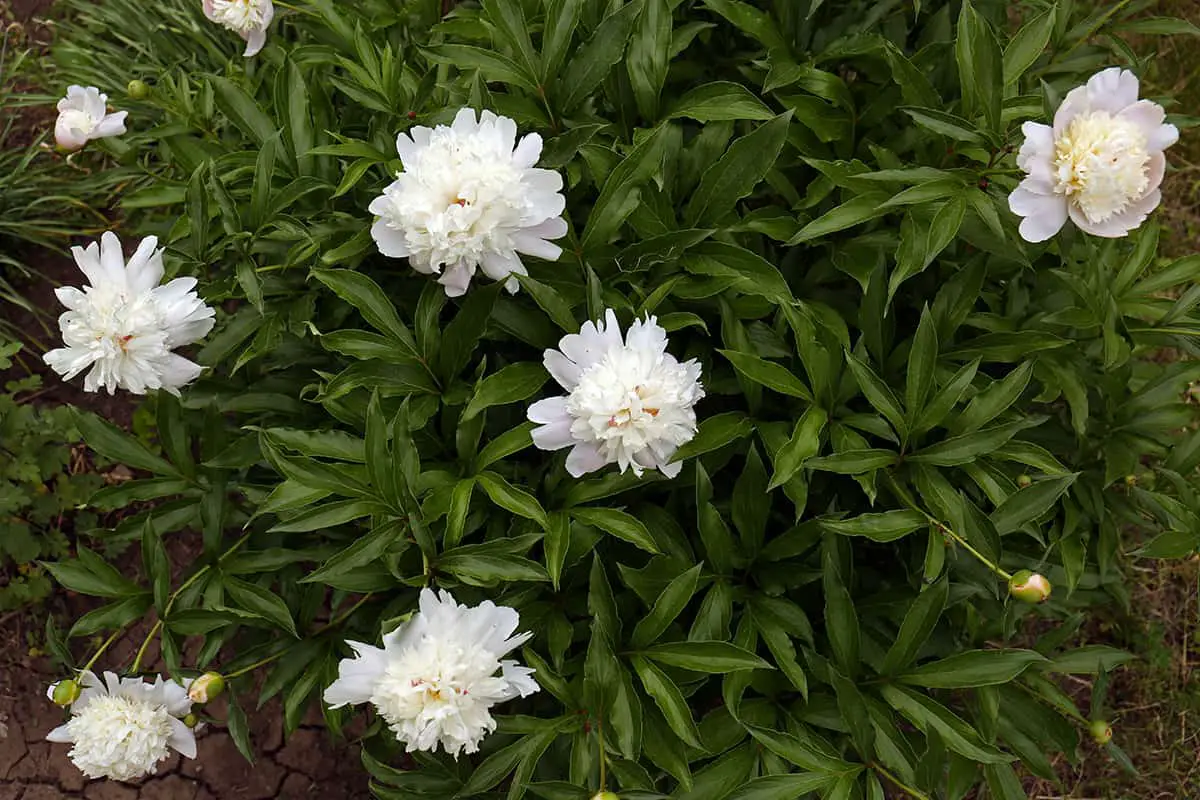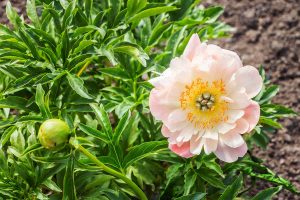Understanding the different types of fertilizers you can use for different plants can be tricky. Flowering plants usually require different fertilizers to foliage plants, and even amongst flowering plants, there are some which rely heavily on fertilizers and some which do not need fertilizing at all. Here we delve into the topic of fertilizers for peonies.
Table of Contents
Do Peonies Need Fertilizer?
Peonies are low-maintenance plants that can produce an abundance of large, beautiful flowers for many decades without ever being fed any fertilizer at all. If you would prefer to not fertilize your peonies then this won’t harm the plant in any way, and you can still expect it to perform well.
However, many gardeners like to give their plants an extra boost of nutrients to keep them in their best possible condition. If you want to fertilize your peonies then this can be done at certain periods throughout the year. Be sure to avoid fertilizers which are heavy in nitrogen because this will actually be detrimental to the flowering capacity of the plant, and instead you’ll witness an over-development of foliage.
Can Fertilizer Harm Peonies?
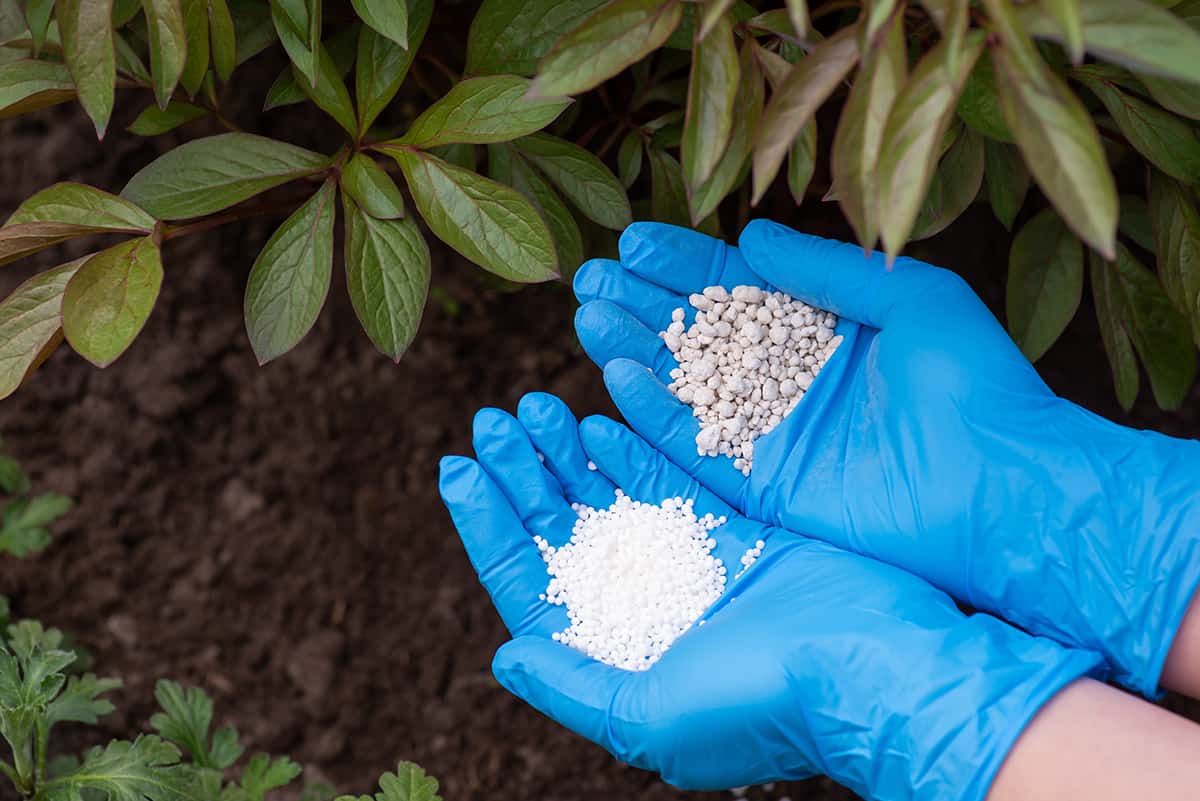
If you use a slow-release fertilizer for your peonies then the chances of you harming your plant are almost non-existent. Slow-release fertilizers work by gradually seeping nutrients into the soil, and this will ultimately prevent the possibility of fertilizer burn happening.
Fertilizer burn is an issue that can cause damage to plants when they are fertilized too heavily, too often, or when a strong fertilizer comes into contact with the tissue of the plant. Since peonies don’t need fertilizer, a strong application would be inappropriate. Instead, slow-release fertilizers will provide a helpful boost to the plant, and avoid any incidences of fertilizer burn.
Don’t be tempted to use a concentrated fertilizer solution to encourage your peonies to flower more heavily, as this will actually have the opposite effect. Fertilizers that are too concentrated will harm the roots of the plant, leaving it unable to absorb the moisture and nutrition it needs to thrive.
Always use a fertilizer that is low in nitrogen for your peonies, because otherwise, you will end up with too much foliage and minimal flowers. Though this may not technically be considered as harming the plant, it will certainly harm the look of your spring garden by causing it to lack blooms.
Some gardeners will apply an all-purpose fertilizer application to their entire garden, but these are usually nitrogen-based, with minimal amounts of phosphorus and potassium.
This type of all-purpose fertilizer will not benefit your peony, and instead can cause it to produce an abundance of foliage at the cost of the flowers. Instead, be sure to choose a fertilizer that has a higher proportion of phosphorus and a lower proportion of nitrogen.
When using fertilizer, apply it to the soil rather than directly to the plant. Some types of fertilizer should be sprinkled over the surface of the soil, while others can be applied around the stem of the peony where it is emerging from the soil. Avoid allowing the fertilizer to come into contact with the tissue of the plant, as it is possible for this to cause damage.
Best Fertilizers for Peonies
The best types of fertilizer for peonies are those which are heavy in phosphorus, and lower in nitrogen. Phosphorus is what helps plants to produce more flowers, while nitrogen is what will help them develop more lush foliage.
There are various ways you can feed your peonies, including homemade fertilizers, organic fertilizers, and synthetic fertilizers. The best fertilizers for peonies include:
Compost

Some people consider compost to be a growing medium to mix in with soil during planting, but it is so nutrient dense that it makes a great slow release fertilizer when used as topsoil. To fertilize your peonies with compost, this is best done in late fall when the plants have been cut back to ground level.
The compost will be easy to spread over the soil at this time of year because there won’t be any peony plant stems growing upwards to get in your way. It also means that the nutrients in the compost have several months to work themselves deep into the layers of the soil before spring rolls around.
To use compost as a peony fertilizer, spread a layer that is an inch or two thick over your existing soil. When you water the soil, or when it rains, the water will gradually carry the nutrients from the compost into the soil below. This means the nutrients will be available for the plant’s roots to absorb.
Bone meal
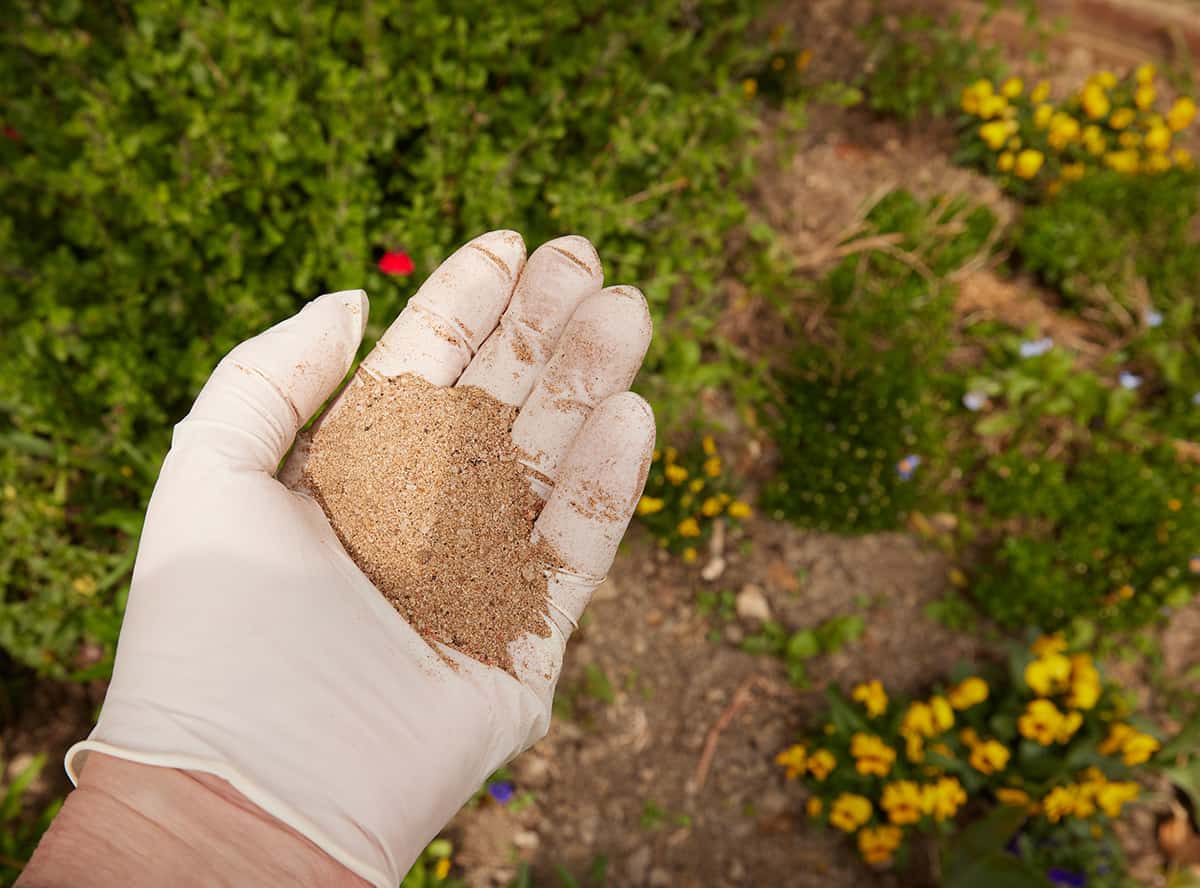
Bone meal fertilizer is an organic type of fertilizer that is a by-product of the beef industry. It is made of ground cow bones and is rich in phosphorus, which is why it is recommended for flowering plants such as peonies. It is a slow-release fertilizer that should be applied to the soil surrounding the peonies, rather than directly to the peonies themselves.
You can sprinkle bonemeal onto the surface of the soil in late fall or very early spring before the first shoots of the peony plant have started to appear. When the peonies are watered, or there is rainfall, the bone meal will be taken into the deeper levels of the soil. You can also use bone meal fertilizer when planting your peonies to give them a nutrient boost.
Simply add a spoon of bone meal to the hole where you are planting your peony tuber, and cover over with soil. Many of the packaged fertilizers you can buy for flowering plants will be largely made up of bone meal, so it is a great organic alternative if you want to avoid processed or synthetic fertilizers.
Rose fertilizer
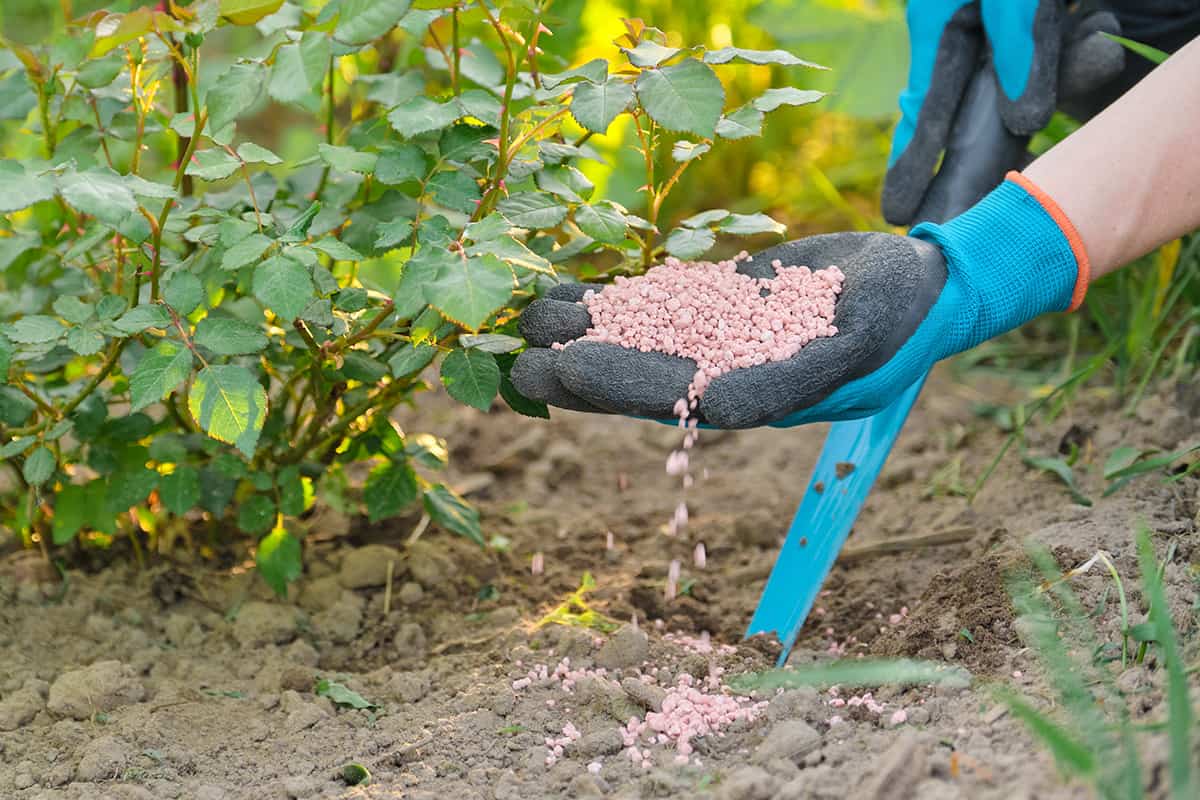
Roses require much the same level of nutrition as peonies, so if you want to give your peonies a boost you can use fertilizers that have been formulated for use with roses. Rose fertilizer is typically much more available than specific peony fertilizer, which is why many gardeners will use rose fertilizer in the absence of peony fertilizer.
Bulb fertilizer
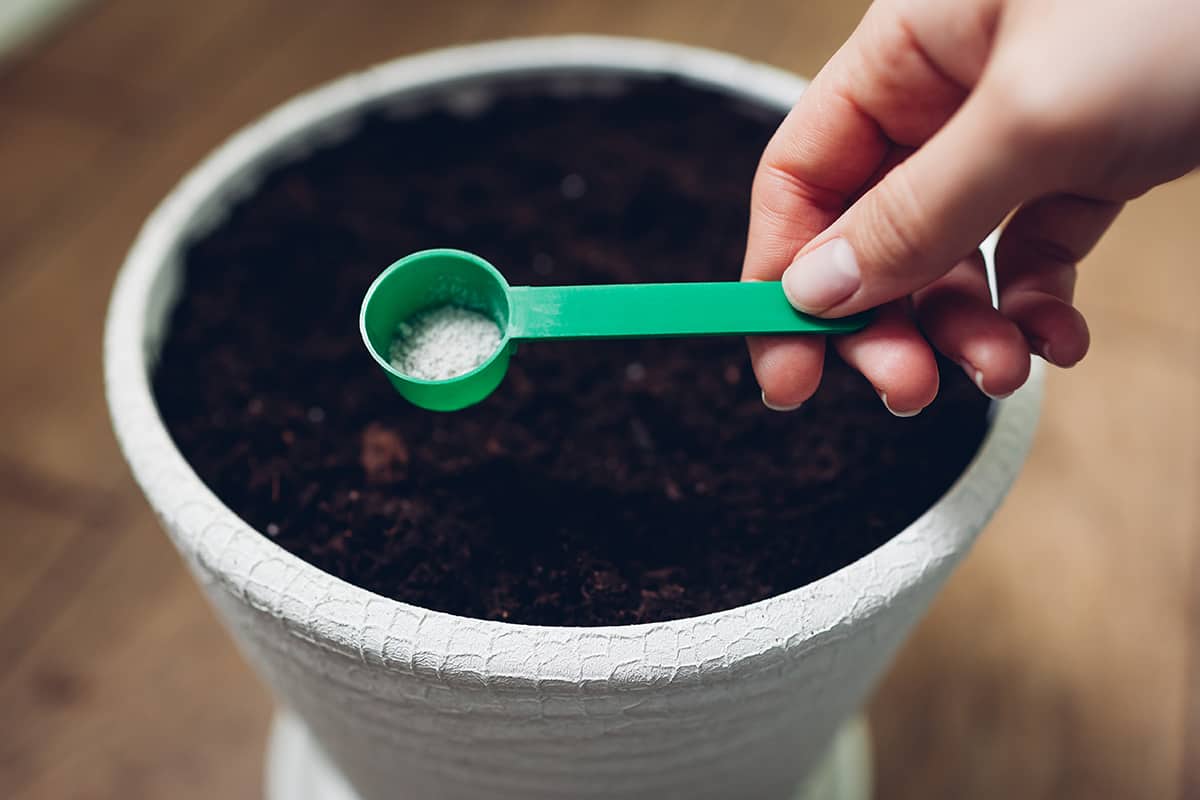
Fertilizers that have been specifically created to use with bulbous plants are a good choice for peonies. Peonies grow from tubers, which are very similar to bulbs, as bulbs are flowering plants, it makes sense for their fertilizer to be suitable for peonies.
Perennial flower fertilizer
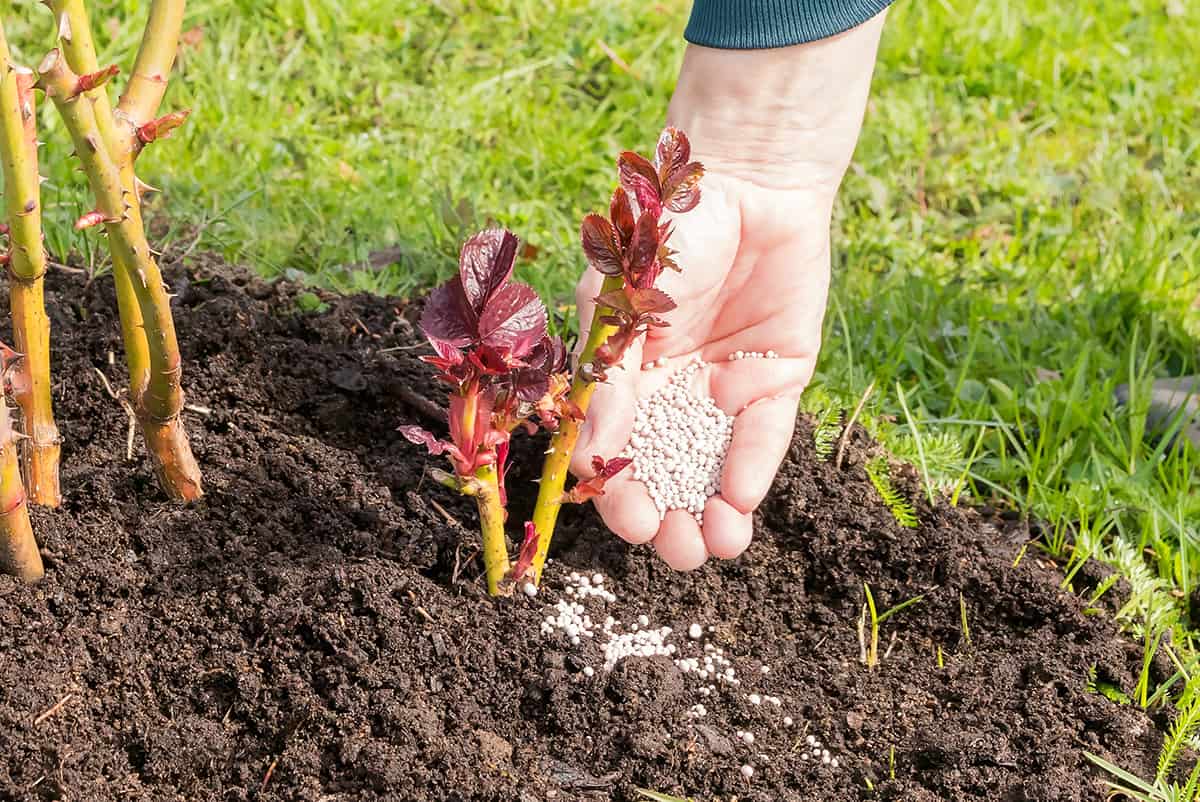
A perennial flower fertilizer will have higher levels of phosphorus than nitrogen since they are intended to focus on increasing a plant’s ability to flower. This makes them well-suited to use with peonies.
Bloom-boosting feeds
You can buy special fertilizers which are aimed at capitalizing on the blooming potential of flowering plants. Most commonly, these types of fertilizers tend to be synthetic, and they will have a higher proportion of phosphorus than any other nutrient.
These types of fertilizers are suitable for use with peonies and can help the plant to produce larger flowers or a greater amount of flowers.
When to Fertilize Peonies
The best time of year to fertilize your peonies depends on the type of fertilizer you are using. A slow-release fertilizer such as compost or bone meal is best applied in late fall or early spring, as this will give the nutrients a chance to seep into the depths of the soil. Packaged fertilizers such as a rose fertilizer which aim to maximize flowering capacity should be applied when the peonies have just started growing in spring.
Once the shoots of the plant are around 1 foot tall, you can add fertilizer to the soil around the plant. Granular fertilizer is recommended as the best type to use with peonies, and this should be applied in a circle around the stem of the peony where it is emerging from the soil.
Take care not to allow the fertilizer to come into contact with the stem itself, then water the soil deeply to encourage the fertilizer to work its way into the soil. You can also add a further application of fertilizer in late summer if you wish, as this can help to prepare the roots for winter, giving them a nutrition boost to see them through their dormant period.
How Often Should Peonies be Fertilized?
Peonies are not plants that rely on fertilizer, so if you wish to fertilize your peonies you should do so sparingly. Over-fertilizing peonies can actually be detrimental to their health and have the opposite effect that you were intending. At the most, peonies should be fertilized three times per year.
This includes a granular fertilizer in spring when the peony is just emerging from the soil, further feed in late summer to prepare the roots for winter, and an application of compost or bone meal in late fall. All three feeds are not necessary, and a single fertilizer application each year will offer a good nutrient boost to your peonies.
